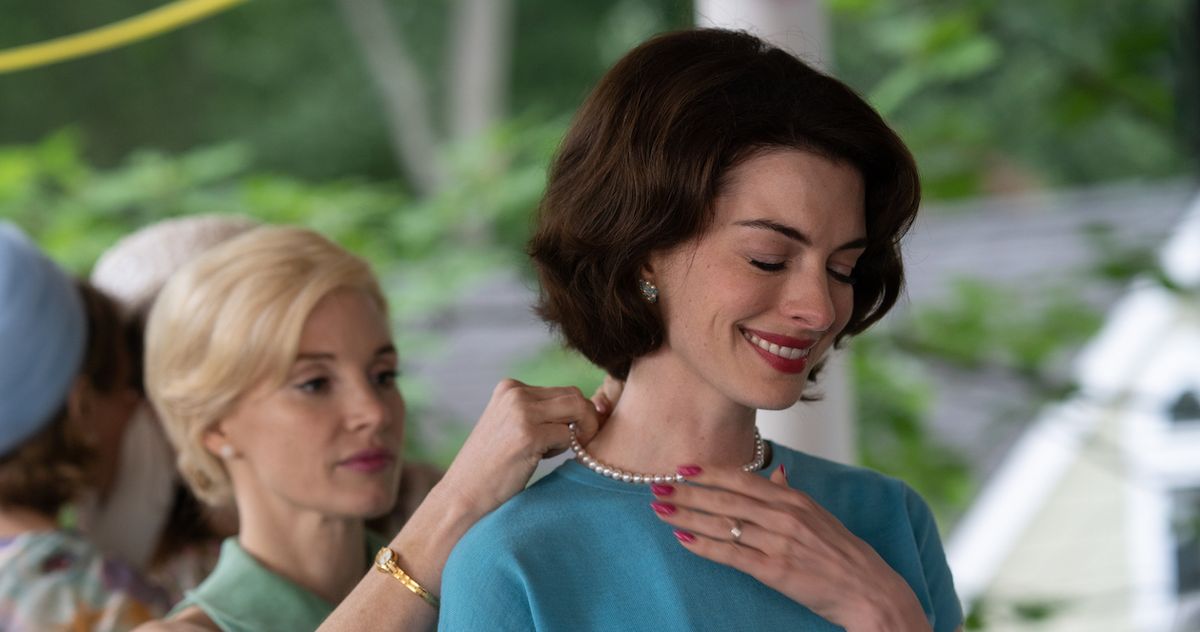Entertainment
Billy Joel made history with his Madison Square Garden residency. It’s ending in 2024

Billy Joel has left the building — almost.
Since beginning his residency at New York City’s Madison Square Garden in 2014, the “Piano Man” singer has set performance records, sold more than a million tickets and serenaded countless fans with his classics. Now, he’s ready to bring it to an end.
During a news conference Thursday, Joel announced that he would end his residency in July 2024, with his 150th lifetime performance at the venue.
“It’s hard to believe that we’ve been able to do this for 10 years,” he said. “I didn’t know how long it was going to last.”
He added: “I’m now 74, I’ll be 75 next year. Seems like a nice number.”
The Grammy winner said he was “lucky enough” to perform at the Garden every month since 2014, a gig that was only supposed to continue until demand fell off. Looking back on those first months, Joel said he thought audiences would lose interest after a while. Instead, the opposite happened, as shows kept selling, “and people keep coming.”
The residency eventually led Joel to break the record for the most performances at the Garden. In June 2015, the Long Island native surpassed Elton John — who performed 64 shows — with 65 performances.
“There are a lot of venues out there but only one Madison Square Garden — my home away from home,” he said then.
During Thursday’s news conference, New York City Mayor Eric Adams praised the “Uptown Girl” singer.
“There’s only one thing that’s more New York than Billy Joel — and that’s a Billy Joel concert at MSG,” Adams said. “For more than 50 years, Billy’s music has defined our city and brought us together.”
Joel played his 100th show at the Garden in 2018, and a banner was raised to celebrate the occasion. He later told the New York Times that he didn’t think he’d have “the physical wherewithal” to continue the show five years later.
Speaking with the Los Angeles Times in March, Joel said the fact that he was still performing at the Garden was “bizarre.”
“At the end of every tour, I feel like that’s it for me: ‘OK, I’m done,’” he said. “And then some time goes by and it’s like, ‘Let’s go out and play.’”
With his residency coming to a close next year, some fans might wonder if a Joel farewell tour (akin to John’s) might be a possibility. Here’s his answer: “I have a disdain for capitalizing on that.
“‘Let me threaten that it’ll be the end, and then I’ll make a lot of money,’” he told The Times in March. “I’ve seen bands so many times announce their farewell tours, and then they never go away. I’ve seen a couple of the Who farewells at this point.”

Movie Reviews
What If Jessica Chastain and Anne Hathaway Had a Mother-Off, and We All Lost?

The strange case of Mothers’ Instinct.
Photo: Neon
There’s a new movie starring Jessica Chastain and Anne Hathaway out this week, which is normally the sort of thing you’d expect to have heard about. But, after its release in the U.K. months ago, Mothers’ Instinct is slipping into U.S. theaters with as little splash as an Olympic diver nailing a triple somersault tuck. The film, a thriller directed by Benoît Delhomme, is getting the treatment typically reserved for a disaster, which is a shame, because I’ve been dying to discuss it with someone, and that’s hard when no one has any idea what you’re on about. Mothers’ Instinct is, indeed, pretty terrible, and not in the so-bad-it’s-good sense, and yet there’s something strangely moving about it. It’s a poignant example of how what looks like rich material to actors can turn out to be lousy material for audiences. Mothers’ Instinct is a remake of a 2018 Belgian film adapted from a novel by Barbara Abel, and watching it, you can appreciate exactly why these two major actors signed on to star in it. Funnily enough, those same qualities go a long way toward explaining why the movie doesn’t work.
Mothers’ Instinct isn’t camp, but it’s close enough that if you squint, you can almost see a version of the film that tips into something broader. Of course, if you squint, you wouldn’t be able to appreciate how immaculately Chastain and Hathaway are costumed. They look incredible — not like two 1960s housewives, which is what they’re playing, so much as two people who keep switching outfits because they can’t decide what to wear to the high-end Mad Men–themed party they’re headed to later. As Alice, Chastain is styled like a Hitchcock blonde in pin-curled ash updos and cardigan sets, while as Alice’s neighbor and friend Céline, Hathaway is given a Jackie O. look that involves a shoulder-length bouffant, pillbox hats, and gloves. They’re cosplayers in a gorgeous, airless setting, adjoining houses on a street that might as well be floating in space, the husbands (played by Anders Danielsen Lie and Josh Charles) vanishing to work for long stretches. The artificiality of this intensely manicured re-creation isn’t to any particular end, which gives the whole movie the air of a Don’t Worry Darling situation in which no one ever wakes up to the twist, instead sleepwalking through a stylized dream of Americana.
In fact, while Alice is restless over having given up her job as a journalist to take care of her son Theo (Eamon O’Connell), and Céline gets ostracized by the community after the death of her son, Max (Baylen D. Bielitz), Mothers’ Instinct isn’t actually all that interested in the pressures of living under a repressive 1960s patriarchy. Instead, it’s about another time-tested theme, one that’s best summed up as: Bitches be crazy. The perfect sheen of its surfaces — Delhomme, who’s making his directorial debut, is a cinematographer who started his career with The Scent of Green Papaya and has since worked with everyone from Tsai Ming-liang to Anton Corbijn — is paired with a score that shrieks unease from the opening scene, in which Céline is thrown a surprise birthday party. The source of this suspense isn’t revealed until later, after Max takes an unintended swan dive off the porch and the women’s friendship is threatened by grief, guilt, and suspicion. Is Céline in mourning, or does she actually irrationally blame Alice for what happened while developing an alarming fixation on Theo? Is Alice right to be suspicious of her bestie, who’s unable to have another baby, or is she being paranoid because the mental illness that previously resulted in her hospitalization has returned? Is it odd that two feminist actors jumped to participate in a film that traffics so freely in unexamined stereotypes about women and hysteria?
Not, it seems, when the opportunities to stare coldly into space or look on in glassy betrayal are this good. I’m not trying to sound snide here — the characters in Mothers’ Instinct have no convincing inner lives at all, but the exterior work of the actors playing them is choice stuff. When Alice and Céline are getting along, Chastain and Hathaway nuzzle together supportively like long-necked swans. When things start to go south, Chastain opts for an aloof distance with stricken eyes, while Hathaway prefers a labored smile that drops as soon as she’s alone. Theirs is a brittle-off no one can win, but both try their hardest anyway. The effort reaches its crescendo at Max’s funeral, where Hathaway’s enormous eyes glimmer through the barrier of a black lace veil and Chastain tilts her face up so that the elegant tracks of past tears can gleam in the light. The scene ends with Céline collapsing in anguish while Alice rushes her tantrumming child out of the church, an explosion of drama that would be so much more effective if the movie had left any room for modulation instead of starting at 10 and staying there. Mothers’ Instinct gets much sillier before it ends, but given how little it establishes as its baseline tone, it doesn’t feel fair to say it goes off the rails. Rather, as Hathaway stares brokenly into the dark and Chastain tears apart her nightstand drawer in panic, what comes to mind is how great a set of GIFs this movie will make someday. That’s not much, but I guess it’s something?
See All
Entertainment
Tyler Perry calls out 'highbrow' critics, defends his fans: 'Don't discount these people'

Tyler Perry’s last feature film earned a rare 0% on Rotten Tomatoes — a point that’s apparently of little concern to him.
The billionaire filmmaker, best known for his franchise character Madea, is far more interested in the opinions of his fans than those of “highbrow” critics, he said on the “Baby, This is Keke Palmer” podcast.
“For everyone who is a critic,” Perry said in the Tuesday episode, “I have thousands of — used to be — emails from people saying: ‘This changed my life. Oh, my God, you know me. Oh, my God, you saw me. How did you know this about my life and my family?’ So that is what is important.”
Critiques of Perry and his purportedly flat depictions of Black characters date back to his early directing days. Spike Lee, for one, in 2009 famously alluded to Perry’s work while complaining about the “buffoonery” in Black comedy. More recently, playwright Michael R. Jackson took his turn swinging at the movie mogul in his metafictional musical “A Strange Loop.”
In the number “Tyler Perry Writes Real Life,” Jackson’s protagonist — a Broadway usher who dreams of being a writer — denounces Perry’s oeuvre: “The crap he puts on stage, film and TV / Makes my bile want to rise!”
The song wasn’t born of any “personal vendetta,” Jackson told Washington Post Live in 2022. “It’s really about actually taking Tyler Perry’s work very seriously, because it’s often held up, often by Black communities, as sort of, like, the end-all-be-all of what one can do as a Black artist.”
“I just wanted to sort of problematize that and satirize that,” he said.
Upon Palmer referencing Jackson’s musical jab, Perry told the podcast host, “I know for a fact that what I’m doing is exactly what I’m supposed to be doing.”
When it comes to critics in general, he continued, it’s best to “drown all that out.”
“We’re talking [about] a large portion of my fans who are disenfranchised, who cannot get in the Volvo and go to therapy on the weekend,” he said. “So you’ve got this [Black critic] who is all up in the air with his nose up looking at everything, and then you’ve got people like where I come from, and me, who are grinders, who really know what it’s like, whose mothers were caregivers for white kids, and were maids and housekeepers.”
He added: “Don’t discount these people and say that their stories don’t matter. Who are you to be able to say which Black story is important or should be told? Get out of here with that bull-.”
Corey Hardict, who co-stars in Perry’s latest film “Divorce in the Black,” last week invoked a similar defense for the critical bomb: “I mean, the people love the movie and we do it for the people — that’s who I do it for. If the culture’s rocking with it, it’s all love. So it’s fine.”
Perry’s podcast comments have already garnered backlash online, with Preston Mitchum of the reality show “Summer House: Martha’s Vineyard” writing Wednesday on X, “Yes, because writing and producing a movie where a Black woman from a small town cheated on her husband, acquired HIV, then ended up physically disabled is absolutely the groundbreaking Black story we need to see.”
Mitchum’s post seemingly refers to Perry’s 2013 film, “Temptation: Confessions of a Marriage Counselor.”
Palmer defended Perry against other disparagers online, writing Wednesday on X, “The enemy isn’t Tyler it’s the system that makes it hard for multiple black artist[s] to shine at one time.”
“Tyler is not the gatekeeper of all black stories he’s just one creative who broke through the system,” she wrote. “Advocating for others to do the same is the fight, not hating Tyler for his work that many do love.”
Perry in 2019 celebrated the grand opening of his 330-acre Tyler Perry Studios in Atlanta. He created the complex with the hope of promoting cultural diversity in the film industry, he told The Times in 2016.
“Sometimes I drive around here by myself and think, ‘Is this too much, or is this what I’m supposed to do?’ ” Perry said. “The answer is obvious. When this fell into my lap, I said, ‘I have to do this.’ This is the endgame.”
Movie Reviews
Movie Review: Twisters – Kenbridge Victoria Dispatch

Movie Review: Twisters
Published 11:15 am Friday, July 26, 2024
1 of 3
Let me immediately cut to the chase (pun intended) and answer the question you’re all wondering. TWISTERS is a fun and entertaining summer blockbuster, but it in no way holds a candle to its predecessor TWISTER (1996). Still, the CGI is intense, the sound design is loud and immersive, and the lead performances — especially from Glen Powell — are sure to wow.
Following a horrible tragedy, meteorologist Kate Carter (Daisy Edgar-Jones) has spent years out of the storm chasing business. She now lives in the largely tornado-less New York City, using her innate understanding of storm systems to direct weather alerts. But when her old friend Javi (Anthony Ramos) begs her to join his privately-funded start-up, which is designed to use military-grade radars to learn more about tornadoes and save communities in Oklahoma, she agrees to give him a week of her time. It’s not too long before “tornado wrangler” influencer Tyler Owens (Glen Powell) enters the scene with his ragtag group of weather enthusiasts, creating a competition between scientific research and entertainment. Each group races to be the first on the scene, with Kate and Javi seeking to model the tornado and Tyler trying to get the most likes on social media. But can the two groups find a way to work together or will the competition be more vicious than the tornadoes?
I am admittedly judging myself for caring too much about a summer blockbuster’s plot, because that’s not really what any of us sign up for with these films. But the various encounters with tornadoes begins to feel slightly repetitive and creates pacing issues, making a two-hour film feel like its runtime. And for some reason, it seems like there is something missing when it comes to portraying the sheer terror of experiencing F5 tornadoes, unlike the original film; the main set pieces were not as memorable.
The film does little to make you care about whether the characters live or die, relying on Glen Powell and Daisy Edgar-Jones’s chemistry and natural charisma to do the heavy lifting. The second Powell steps out of his gigantic truck, with his cowboy hat and belt buckle sparkling in the sun… sorry, I just lost my train of thought… and that’s what TWISTERS is hoping. Powell’s magnetism is sure to knock you off your feet and distract you from the film’s middling plot. And while Edgar-Jones’s performance is more muted, due to her character’s battle with PTSD, she brings an important level of humanity to the film and a character to both see yourself in and root for. More than that, her chemistry with Powell is off the charts and will certainly leave you wanting their relationship explored more in a sequel. The supporting characters are not given much to work with and as such, don’t really engender much concern when they are in deadly situations.
One element of TWISTERS I liked more than TWISTER is it showed the emotional and financial toll tornadoes ravage on communities. Of course, that is an element of the first film, but TWISTERS does a great job showcasing the speed in which tornadoes can overtake and devastate a community, both in loss of life and loss of property. This, juxtaposed with the “fun” in chasing storms brings a real human element to the film. I also want to give a shoutout to the movie not having any sad animal scenes (apart from a possible run-in with a chicken). So for all of you sickos excited to see another flying cow, this isn’t for you.
TWISTERS is the exact kind of movie you need to see in a theater so you can get the full experience. Where else can you admire the cinematography, get immersed in the sound design, and lose yourself in Glen Powell’s cowboy hat and million dollar smile? I saw it in a Dolby theater and was blown away.
There is no end credit scene.
My Review: B
-

 World1 week ago
World1 week agoOne dead after car crashes into restaurant in Paris
-

 Midwest1 week ago
Midwest1 week agoMichigan rep posts video response to Stephen Colbert's joke about his RNC speech: 'Touché'
-

 News1 week ago
News1 week agoVideo: Young Republicans on Why Their Party Isn’t Reaching Gen Z (And What They Can Do About It)
-

 Movie Reviews1 week ago
Movie Reviews1 week agoMovie Review: A new generation drives into the storm in rousing ‘Twisters’
-

 News1 week ago
News1 week agoIn Milwaukee, Black Voters Struggle to Find a Home With Either Party
-

 Politics1 week ago
Politics1 week agoFox News Politics: The Call is Coming from Inside the House
-

 News1 week ago
News1 week agoVideo: J.D. Vance Accepts Vice-Presidential Nomination
-

 World1 week ago
World1 week agoTrump to take RNC stage for first speech since assassination attempt

















